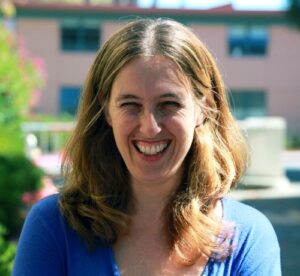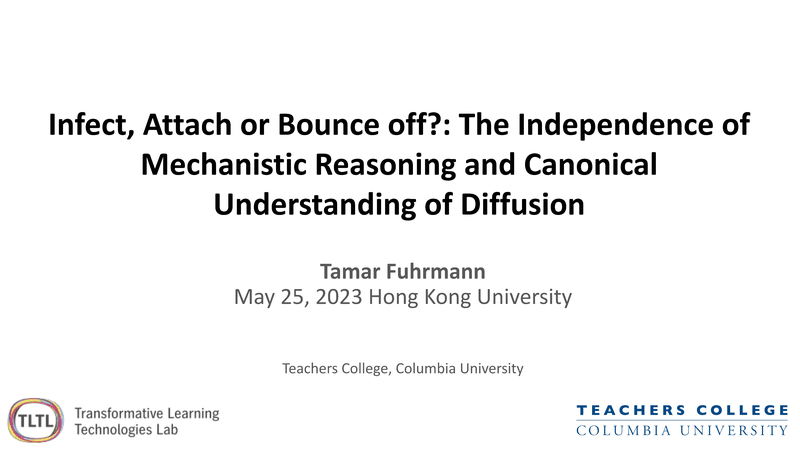Infect, Attach or Bounce off?: The Independence of Mechanistic Reasoning and Canonical Understanding of Diffusion
The seminar aims to introduce a new web-based environment that combines creating computational models using domain-specific code blocks with analysis of real-world data. The use of domain-specific blocks lowers the entry point to programming by enabling students to focus on modeled entities rules and behaviors. Drawing on data from an implementation of a unit on the topic of diffusion with two science classes, I present how the interplay between data analysis and model design shifts middle school students' understanding of diffusion from simple to sophisticated mechanistic reasoning and from non-canonical to canonical ideas about diffusion. With this data, I introduce a novice framework for the relationship between students’ developing mechanistic reasoning and their canonical understanding, suggesting that they develop independently. Further, I illustrate how the computational modeling environment, MoDa, used in this study pushed students’ mechanistic reasoning toward sophistication. Moreover, in allowing them to explore non-canonical mechanisms, MoDa supported their convergence on canonical scientific ideas about diffusion.

Tamar Fuhrmann is a senior research scientist at Teachers College, Columbia University, where she leads research projects at the Transformative Learning Technologies Lab and the global FabLearn Program. She hopes to profoundly transform the learning of science, technology, engineering, and mathematics and implement a constructionist mindset into schools. Her research examines ways to integrate new educational technologies and constructionist activities into the STEM school curriculum. She works on several international research projects in the US, Brazil, Italy, Hong Kong, and Israel, co-leading international professional development workshops, developing advanced curricular units in STEM, and creating educational technologies, especially around computer modeling in science. She holds a MSc in Biochemistry from The Hebrew University in Jerusalem, a PhD from The Technion Israel Institute of Technology, and a postdoc from Stanford University.
